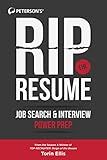Best Resources to Buy to Boost Your Resume in February 2026
Highlighting soft skills on a resume is crucial for effectively showcasing your abilities and qualifications to potential employers. While technical skills are important, employers also value soft skills, which encompass interpersonal qualities, communication abilities, and personal attributes. Here are some guidelines on how to showcase soft skills on your resume:
- Identify relevant soft skills: Begin by determining which soft skills are most relevant to the job you are applying for. Look closely at the job description and requirements to help you identify the specific soft skills that the employer values.
- Incorporate soft skills throughout your resume: Integrate your soft skills into different sections of your resume, such as your summary, work experience, and skills sections. This ensures that your soft skills are well-represented and easily identifiable by the employer.
- Use action verbs: When describing your soft skills in your resume, use strong action verbs that effectively demonstrate these skills. For example, instead of stating "good communication skills," you could write "effectively communicated complex information to diverse audiences."
- Provide specific examples: Back up your claims of possessing certain soft skills by including specific examples or achievements that demonstrate your abilities. For instance, if you are highlighting your leadership skills, mention a time when you successfully led a team or initiated a project.
- Quantify when possible: Whenever possible, quantify your soft skills to make them more tangible. For instance, instead of simply stating "excellent problem-solving skills," you could mention that you consistently resolved customer complaints within 24 hours, resulting in a 20% increase in customer satisfaction ratings.
- Tailor your resume to each job: Customize your resume for each job application by emphasizing the soft skills that are most relevant to the job. This demonstrates your ability to adapt to different roles and shows that you possess the desired qualities for the specific position.
- Seek recommendations: Consider including recommendations, letters of recommendation, or endorsements from previous employers or colleagues that emphasize your soft skills. This can lend credibility to your claims and provide employers with a trustworthy perspective on your abilities.
Remember to strike a balance between highlighting your technical skills and showcasing your soft skills. Both are important when it comes to presenting a well-rounded and desirable candidate for any job opening.
How can you exhibit your analytical skills on a resume?
Here are some ways to exhibit your analytical skills on a resume:
- Include specific examples: Highlight quantifiable accomplishments where you successfully applied analytical skills to solve problems or make data-driven decisions. For example, mention a project where you conducted thorough data analysis to identify trends and make recommendations that resulted in cost savings or improved efficiency.
- Mention relevant software or tools: If you have expertise in using analytical tools or software, such as Excel, Tableau, Python, or SQL, explicitly mention them in your skills or technical proficiencies section. This shows that you have the necessary technical skills to carry out data analysis effectively.
- Highlight educational background: If you have a degree or coursework in a field related to data analysis, statistics, mathematics, or any other analytical discipline, make sure to emphasize it in your education section. This demonstrates your theoretical knowledge and foundation in analytical thinking.
- Showcase problem-solving abilities: Use your achievements or experience section to explain how you tackled complex problems and the steps you took to reach a solution. Briefly describe your approach, methodologies used, and the outcomes achieved.
- Quantify results: When discussing previous projects or accomplishments, identify measurable outcomes that demonstrate your ability to analyze data and derive actionable insights. For instance, mention how you analyzed sales data to identify a market opportunity that resulted in a revenue increase of a specific percentage.
- Highlight critical thinking skills: Discuss situations where you used critical thinking skills to evaluate information, identify patterns, and make logical connections. This shows that you have the ability to think analytically and consider multiple perspectives.
- Certifications and courses: If you have completed any relevant certifications or attended specialized courses in areas like data analysis, business intelligence, or statistical analysis, include them in a dedicated section or under your education. This demonstrates your commitment to enhancing your analytical skills.
Remember, it's essential to tailor your resume to each specific job application, emphasizing the analytical skills that are most relevant to the desired role.
How to demonstrate your creativity and innovation skills on your resume?
There are several ways to demonstrate your creativity and innovation skills on your resume. Here are some tips:
- Highlight relevant experiences: Include examples of projects or initiatives where you were able to apply your creativity and innovative thinking. Describe the challenges you faced, the solutions you developed, and the impact it had. Use specific metrics or results to make it more impressive.
- Showcase creative problem-solving: Describe situations where you identified a problem, applied creative thinking to come up with an effective solution, and implemented it successfully. Highlight the uniqueness of your approach and explain how it differentiated you from others.
- Mention innovative achievements: If you have received any awards, recognition, or patents for your creative ideas or innovations, be sure to mention them on your resume. This demonstrates your ability to think outside the box and contribute innovative solutions.
- Use action verbs and descriptive language: When describing your experiences, use action verbs and descriptive language to showcase your creativity and innovation. Examples of action verbs include generated, conceptualized, devised, designed, implemented, and pioneered.
- Include relevant skills: Create a dedicated skills section or incorporate a separate bullet point section in your work experience to list skills that are associated with creativity and innovation. This can include skills like brainstorming, problem-solving, design thinking, or using specific tools or software related to innovation.
- Provide tangible examples: Wherever possible, provide tangible examples of your creativity and innovation skills. For instance, if you are applying for a design role, include a link or reference to your portfolio. This will allow employers to see your work firsthand.
- Write a compelling summary: Craft a well-written summary or objective statement that emphasizes your creativity and innovation skills. Mention your passion for finding new solutions, your ability to think critically, and your track record of success in creative endeavors.
Remember, it's important not only to mention your creativity and innovation skills on your resume but also to demonstrate them through concrete examples. This will help employers understand the depth and impact of your creative thinking.
What is the impact of problem-solving skills in a resume?
Problem-solving skills have a significant impact on a resume as they are highly valued by employers across various industries. Here are some key impacts of highlighting problem-solving skills in a resume:
- Employability: Effective problem-solving skills demonstrate your ability to handle complex situations and find innovative solutions. Employers seek individuals who can identify issues, evaluate options, and implement effective solutions, making you a valuable asset to their organization.
- Adaptability: Problem-solving skills indicate your ability to think critically, analyze situations, and adapt to changing circumstances. This shows employers that you are flexible and can handle challenges in a dynamic work environment.
- Teamwork: Problem-solving skills often involve collaborating with others to solve complex issues. By showcasing your problem-solving abilities, you demonstrate your aptitude for working collaboratively with team members, which is highly valued by employers.
- Leadership potential: Effective problem-solving skills showcase your leadership potential, as leaders are expected to navigate through challenges with confidence and encourage others to contribute to finding solutions. Employers often look for individuals capable of taking initiative and driving problem-solving efforts within a team or organization.
- Innovation: Problem-solving skills indicate your creativity and ability to think outside the box. Employers value candidates who can come up with unique solutions to problems, demonstrating innovation and a willingness to contribute fresh ideas.
- Productivity and efficiency: Strong problem-solving skills can improve overall productivity and efficiency. Companies seek individuals who can identify inefficiencies, find solutions, and implement improvements that positively impact performance.
- Enhance other skills: Problem-solving skills often intersect with various other skills like communication, decision-making, critical thinking, and analytical abilities. By highlighting your problem-solving skills, you indirectly showcase your proficiency in these related areas as well.
Overall, problem-solving skills are highly sought after by employers as they contribute to an individual's performance, collaboration, adaptability, and overall effectiveness in the workplace.




